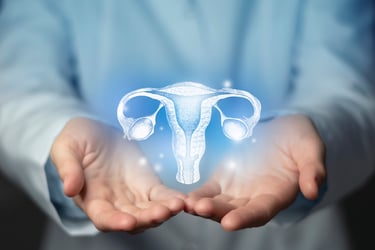eStoreRx™
Online Supplement Dispensary
eStoreRx™ is an easy direct-to-patient ordering & fulfilment program for lifelong wellness.
For over 40 years, Biotics Research Corporation has revolutionized the nutritional supplement industry by utilizing “The Best of Science and Nature”. Combining nature’s principles with scientific ingenuity, our products magnify the nutritional
eStoreRx™ is an easy direct-to-patient ordering & fulfilment program for lifelong wellness.
Biotics Research is proud to expand our commitment to education with the Wellness Unfiltered Pro Podcast. Each episode delves into key health topics and the clinical applications of our premier products. Through candid, insightful conversations, our team offers practical guidance to keep you informed and empowered as a healthcare professional.
February 26 2026
A study published recently in the Journal of Cachexia, Sarcopenia and Muscle raises concerns about a possible side-effect of long-term statin drug use...
 A recent study has furthered understanding of the relationship between follicle-stimulating hormone (FSH) and follicle-stimulating hormone receptor (FSHR), which may help support the design of more targeted approaches to fertility and other FSHR-related issues.
A recent study has furthered understanding of the relationship between follicle-stimulating hormone (FSH) and follicle-stimulating hormone receptor (FSHR), which may help support the design of more targeted approaches to fertility and other FSHR-related issues.
FSH is an essential glycoprotein hormone for normal human reproduction in both men and women. It is secreted by the anterior pituitary gland and stimulates estrogen production, ovarian follicles maturation and spermatogenesis.
The functions of FSH is mediated by the G protein-coupled receptor FSHR, found in the ovaries, testes, and uterus. Abnormal FSH-FSHR signaling is believed to cause infertility and ovarian hyperstimulation syndrome (OHSS), a potentially life-threatening condition. More recent research also suggests that the function of extra gonadal FSHR may be relevant to the development of Alzheimer’s disease, osteoporosis, and some cancers. However, despite over 90 years of research there are still many gaps in knowledge regarding the interactions between FSH and FSHR, and therefore significant limitations in existing FSH-FSHR-related treatments for infertility.
Research has focused on developing small molecular agonists and antagonists for FSHR. These are compounds that can interact with FSHR and modulate its activity to achieve therapeutic effects. Agonists activate the receptor and promote cellular responses, while antagonists inhibit the receptor and prevent its activation. However, up to now, small molecular agonists and antagonists have not entered clinical research due to their low specificity.
This new study discusses the molecular mechanisms involved in the activation of the FSHR by both its natural ligand, FSH, and synthetic allosteric agonists. It investigates the structural changes that occur in the FSHR upon binding to FSH and allosteric agonists. The researchers found that FSH induces a conformational change in the receptor that allows for the binding of downstream signaling proteins, while allosteric agonists induce a different conformational change that activates signaling in the absence of downstream binding partners. The study also identifies specific amino acid residues in the FSHR that are critical for the binding of both FSH and allosteric agonists, providing insights into the design of novel therapeutics that can selectively target FSHR.
Overall, the study enhances understanding of the molecular mechanisms involved in FSHR activation and provides a basis for the development of therapeutics to help support healthy reproduction.
Submit this form and you'll receive our latest news and updates.
*These statements have not been evaluated by the Food and Drug Administration. This product has not intended to diagnose, treat, cure, or prevent any disease.
© 2025 Biotics Research Corporation - All Rights Reserved
Submit your comment